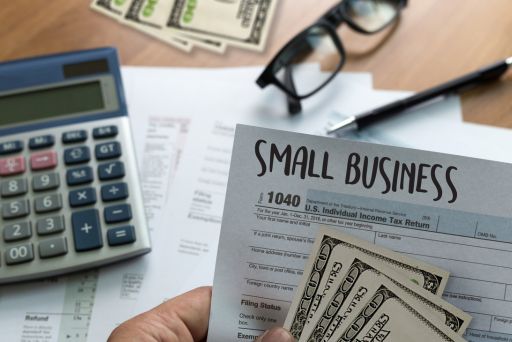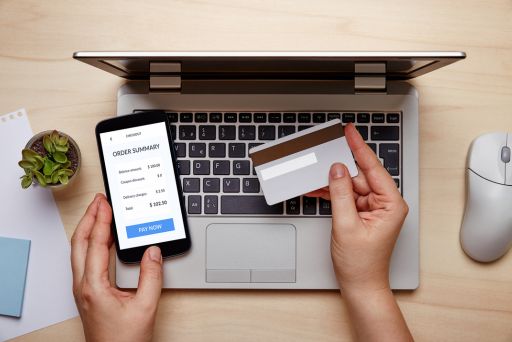During Q4, tax season seems like it’s lightyears away. But prepping for tax season now, can save you time and money come tax time. Here are 3 year-end contributions you might want to consider before you ring in the New Year, and how they’ll help your bottom line.
Year-End Contribution #1: Charitable Donations
No one will refute that it’s the season for giving. But did you know that giving can provide you with tax write-offs in addition to a host of warm fuzzies? It can. Charitable donations can impact taxes for the year in which they were given. To claim donations on your tax return here’s what you need:
- Receipts are required from all IRS-qualified charities for any donations larger than $250 if you’re going to claim them.
- You don’t always have to donate cash – household items, cars, boats, etc., can also be contributed. In such cases a specified amount can be deducted from such donations.
- If you’re claiming donations to individual charities, you’ll need to itemize the deduction, rather than claim the standard deduction that is set each year by the IRS.
Tip: Even if you’re not planning to donate now, maybe you’ve donated sometime this year. Take a few minutes and pull out your books, calendar, and bank statements. Review them and gather the necessary paperwork so you’ve got it ready for tax time.
Year-End Contribution #2: Health Savings Account
Invest in your health. It’s something you’ll spend money on anyway, so why not put away some cash in your Health Savings Account (HSA). An HSA allows any unused money to rollover into the following year and when the money is used to pay for qualified medical expenses is tax-free.
Tip: Now is the time to check into HSA options if you don’t already have one. If you have it, but aren’t sure where you’re at, check into your balance, scheduled needed appointments, and see if you’re taking advantage of any employer matching opportunities. Even consider raising the amount you contribute each month so you’re building a reserve for those unexpected medical expenses that may crop up.
Year-End Contribution #3: Retirement Savings
It’s always a good time to consider investing in your future. In fact, it can provide you with a tax break now, and cash later. Any contributions made to retirement accounts are deducted from your taxable income, which can lead to reducing the amount of taxes you owe or possibly increase your refund.
IRAs allow for contributions to be made for the previous year right up until the tax-filing deadline. But if you’re looking to stash some cash into a 401(k) and take advantage of any employer matching, you’ll need to act before year end (Dec 31) or check out the specific requirements for your plan.
Tip: Talk to your accountant and see what type of suggestions they’d make when it comes to contribution to your retirement savings. They’ll have a handle on all the ins and outs and can help you strategically place your money so it’s working for you both now and in the long run.
So with these 3 suggestions in mind, what plans do you have to lessen your tax load before year end? If you’re got questions, lets talk.

FAQs for Year-End Tax Prep and Contributions
How can charitable donations impact my taxes?
Charitable donations can provide tax write-offs for the year in which they were given. To claim these deductions, you need receipts from IRS-qualified charities for donations over $250. Non-cash items like household goods, cars, and boats can also be deducted if itemized properly.
What documentation do I need for claiming charitable donations?
To claim charitable donations, you need receipts for any contributions over $250 from IRS-qualified charities. For non-cash donations, you’ll need to determine and document the fair market value of the items. Ensure you itemize these deductions on your tax return.
What are the benefits of contributing to a Health Savings Account (HSA)?
Contributions to an HSA are tax-deductible, and funds used for qualified medical expenses are tax-free. Unused money in an HSA rolls over to the next year, allowing you to build a reserve for future medical costs. Check your balance and consider increasing contributions to maximize benefits.
How do retirement contributions affect my taxable income?
Contributions to retirement accounts, such as IRAs and 401(k)s, reduce your taxable income, potentially lowering your tax bill or increasing your refund. For 401(k) contributions, ensure they are made by December 31 to take advantage of employer matching and year-end benefits.
When should I make contributions to my IRA or 401(k) to benefit my taxes?
IRA contributions for the previous year can be made until the tax-filing deadline. However, 401(k) contributions should be made by December 31 to take advantage of employer matching and reduce your taxable income for the current year. Consult with your accountant for specific deadlines and strategies.

























